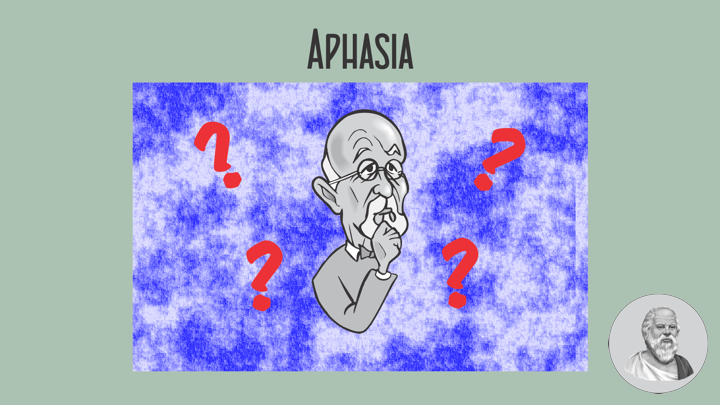——
#Spirituality #Philosophy #Aphasia #Supernatural #WorkLifeBalance #SelfAwareness #SelfKnowledge #SelfTranscendence #PositiveMindset
——
——
——
What is Aphasia?
Aphasia is a communication impairment that affects all aspects of language, including speaking, understanding speech, reading, and writing. Imagine going to a foreign country where you do not speak the language, or you only remember a few words from your high school or college language course. You would have difficulty saying what you mean, understanding what others were saying to you, reading the language, and writing things down. This provides a little insight into what it might be like to have aphasia.
Aphasia is caused by a brain injury, typically due to stroke, traumatic brain injury, or some other illness. Depending on the exact location of the brain injury, aphasia can manifest itself in many different ways. Some people with aphasia have more difficulty understanding what is said to them and reading than they do speaking. Other people with aphasia have more difficulty saying what they want to say but understand much of what is said to them. Sometimes aphasia is more severe and affects understanding, speaking, reading and writing quite broadly.
What Causes Aphasia?
Aphasia is usually caused by a stroke or brain injury with damage to one or more parts of the brain that deal with language. According to the National Aphasia Association, about 25% to 40% of people who survive a stroke get aphasia.
Aphasia may also be caused by a brain tumor, brain infection, or dementia such as Alzheimer’s disease. In some cases, aphasia is a symptom of epilepsy or other neurological disorder.
What Are the Types of Aphasia?
There are types of aphasia. Each type can cause impairment that varies from mild to severe. Common types of aphasia include the following:
- Expressive aphasia (non-fluent): With expressive aphasia, the person knows what he or she wants to say, yet has difficulty communicating it to others. It doesn’t matter whether the person is trying to say or write what he or she is trying to communicate.
- Receptive aphasia (fluent): With receptive aphasia, the person can hear a voice or read the print, but may not understand the meaning of the message. Often times, someone with receptive aphasia takes language literally. Their own speech may be disturbed because they do not understand their own language.
- Anomic aphasia: With anomic aphasia, the person has word-finding difficulties. This is called anomia. Because of the difficulties, the person struggles to find the right words for speaking and writing.
- Global aphasia: This is the most severe type of aphasia. It is often seen right after someone has a stroke. With global aphasia, the person has difficulty speaking and understanding words. In addition, the person is unable to read or write.
- Primary progressive aphasia: Primary progressive aphasia is a rare disorder where people slowly lose their ability to talk, read, write, and comprehend what they hear in conversation over a period of time. With a stroke, aphasia may improve with proper therapy. There is no treatment to reverse primary progressive aphasia. People with primary progressive aphasia are able to communicate in ways other than speech. For instance, they might use gestures. And many benefit from a combination of speech therapy and medications.
- Aphasia may be mild or severe: With mild aphasia, the person may be able to converse, yet have trouble finding the right word or understanding complex conversations. Severe aphasia limits the person’s ability to communicate. The person may say little and may not participate in or understand any conversation.
Aphasia Luc
I am been working on invention, innovation, expert, and consultant. Aphasia is a condition that robs you of the ability to communicate. It can affect your ability to speak. Aphasia typically occurs suddenly after a stroke or a head injury. He is stroke on September 2013. I could ever have a 2013-2016 is aphasia can understand language, but can’t speak. Although has this problem he has been working with various electronic projects, 3D animation, photography, video, art, jewelry, painting, digital prints, food, drink since then.
Luc Paquin


Leave a Reply